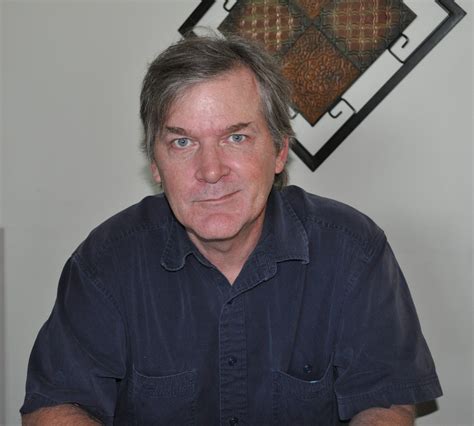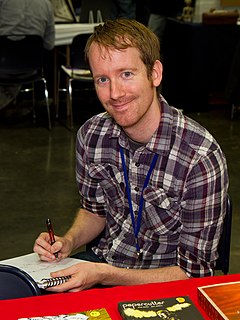A Quote by Flannery O'Connor
We hear a great deal of lamentation these days about writers having all taken themselves to the colleges and universities where they live decorously instead of going out and getting firsthand information about life. The fact is that anybody who has survived his childhood has enough information about life to last him the rest of his days. If you can't make something out of a little experience, you probably won't be able to make it out of a lot. The writer's business is to contemplate experience, not to be merged in it.
Quote Topics
Able
About
Anybody
Business
Childhood
Colleges
Colleges And Universities
Contemplate
Days
Deal
Enough
Experience
Fact
Firsthand
Getting
Going
Going Out
Great
Great Deal
Having
Hear
Him
His
Information
Instead
Lamentation
Last
Life
Little
Live
Lot
Make
Out
Rest
Something
Survived
Taken
Themselves
These Days
Universities
Writer
Writers
Related Quotes
I have had the advantage of the opportunity to meet with Mr. Trump on several occasions. And my experience is that he's very intelligent. He's thirsty for information. He wants to hear what you have to say. He listens to his advisers. He digests the information very quickly, and he's got a good memory, because I remember one time I was talking to him about something, and then he pulled some information out of his memory banks that was a great connection that I hadn't even thought to mention to him.
When we were doing the "Angel Dust" thing we got information from the National Institute of Drug Abuse because we knew that if we went out and said something about angel dust people were going to ask questions about it and we wanted to be sure we had all the information to deal with it when those questions came up. So it's all a question of being as prepared as possible out front, so that if you are going to deal with information it'll be correct. A lot of people won't check it out but some people will.
There's nothing confessional about crafting and shaping a story out of a lived life. In fact, it's quite the opposite - the writer has to be able to transcend the life, to see it as if standing outside of it, in order to be able to make something of it. There's something enormously satisfying and gratifying about crafting something, taking all that chaos and giving it shape.
It can be tempting to blame others for our loss of direction. We get lots of information about life but little education in life from parents, teachers, and other authority figures who should know better from their experience. Information is about facts. Education is about wisdom and the knowledge of how to love and survive.
A distinguished man should be as particular about his last words as he is about his last breath. He should write them out on a slip of paper and take the judgment of his friends on them. He should never leave such a thing to the last hour of his life, and trust to an intellectual spurt at the last moment to enable him to say something smart with his latest gasp and launch into eternity with grandeur.
I believe passionately that Christianity is a way of life, not a theological system with which one must be in intellectual agreement. I feel that Christ would admit into discipleship anyone who sincerely desired to follow him, and allow that disciple to make his creed out of his experience; to listen, to consider, to pray, to follow, and ultimately to believe only those convictions about which the experience of fellowship made him sure.
A lot of times, when you have a disability, one of the things you deal with is other people's projections of what your experience is and their fear about it, and not seeing the experience you're having. There's nothing horrifying about it to me. It is what I deal with. It is my reality and my life, but it's not horrible.
I know "accessibility" is a term that's kind of thrown around wantonly today, especially with talking about visual media. But I think that the strength of comics [is how they] really allow you to transcend those last barriers between a reader absorbing the information of an experience, and a reader being able to project themselves into the [experience of the] people about whom they're reading.





































